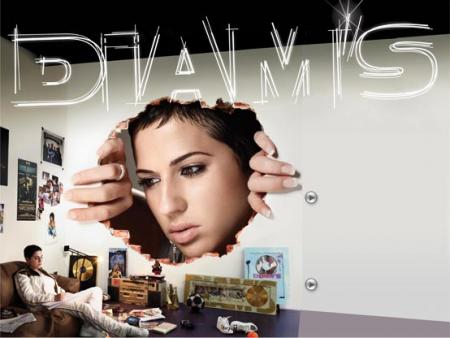|
|
|
|
|
|
mon serie préféré
21/07/2006 20:51

Niña... Amada Mía - Alejandro Fernandez
No te vayas
Que sin tus caricias
Para qué la vida
Para qué cantar
Sí bien sabes que sólo un poco
Yo me vuelvo loco con lo que me das
Soy un ciego
Vivo de limosnas
Pero sí me tocas
Soy feliz de más
Sí quieres ahora
Porque no te vayas
Me convierto en nada para no
estorbar
No hagas caso sí te dicen mala
Córtame las alas no quiero volar
Sí quieres ahora
Niña amada mía
Soy lo que me pidas
Pero junto a tí
Pero sí te marchas
Que esta noche negra
Me convierta en piedra
Para no sentir
photos:
 


|
Commentaire de kimi455 (23/07/2006 21:17) :
ton blog est superbe ma cherie!c'est trés sympa
|
| |
|
|
|
|
|
|
|
aimer la musique
23/07/2006 21:24

Vouloir aimer
|
- Couplet
- Vouloir aimer toute une nuit
- Vouloir aimer pour oublier la vie
- Oublier sous les ennuis
- Oublier tous les soucis.
- Pour une nuit sans lendemain
- Pour une nuit sans petit matin
- Pour une nuit sans sommeil
- Pour une nuit sans réveil
- Pour une nuit d'amour.
- Refrain
- Ecoute donc tomber la pluie
- Qu'est-ce qu'il fait bon !
- Qu'est-ce qu'on est bien !
- Entend souffler le vent
- Et puis dehors
- On a besoin de rien.
- Je prendrai bien une tasse de thé
- Ici, il n'y a pas de cheminé
- Mais non reste à mes côtés
- J'ai ton corps pour me réchauffer
- Propriété de l'auteur
- Tous droits réservés
|

| |
|
|
|
|
|
|
|
young people love music!
23/07/2006 21:25

Songs we hear as teenagers tend to remain lifelong favourites because they become hardwired into our memory during a critical time, a memory conference has heard.
That critical time is known as the reminiscence bump, says Steve Janssen, a PhD student at the University of Amsterdam.
Janssen presented is research into how we form memories of our favourite music, books and movies at the 4th International Conference on Memory in Sydney this week.
He says the reminiscence bump can be partly explained by what's called differential encoding, or an ability to store events better during early adulthood.
"You recall more memories from the period of 10 to 25 [than previous or subsequent periods] and the bump has a peak between 16 and 20," he says.
"The brain works at its optimum in that period. It's a sponge and it soaks up everything."
We also learn languages and musical instruments best during this time.
But attachment to songs isn't all about the reminiscence bump, he says.
We also form a particularly personal connection with music from our teen years because we tend to listen to the same songs over and over, his research indicates.
What's your favourite?
Janssen found that when asked to rate their three favourite records, movies and books, participants in his study overwhelmingly chose items they listened to, watched or read between the ages of 16 and 21.
While music preferences were strongly linked to the reminiscence bump, favourite books and movies were more likely to have been read or viewed recently.
This is because we usually only read books once or twice, and see movies a handful of times, but can be exposed to the same song many times, he reasons.
"All distributions showed a reminiscence bump so there's evidence that people store events better in their teens," Janssen says.
"However, I also found a larger recency effect for books and a larger reminiscence bump for records ... so I suggest a kind of interaction between those two mechanisms.
"The results suggest that differential encoding initially causes the reminiscence bump, but resampling strengthens the bump."
Janssen's presention was based on data gathered through an online survey between January 2005 and April this year.
He analysed results from 1500 participants around the world with an average age of 36, including 23 Australians.
 
| |
|
|
|
|